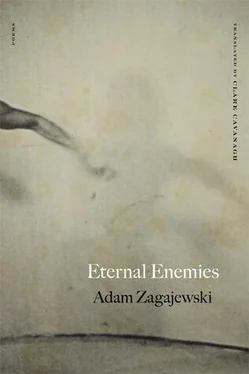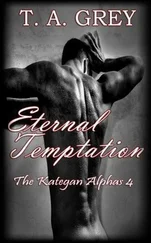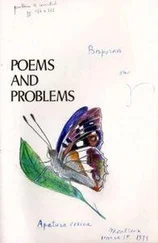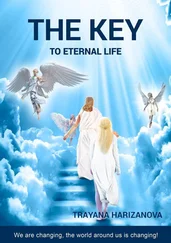but evening brings back
the sea’s tumult
and its din
returns the day just past
into oblivion.
Don’t linger in the graveyard
where the nineteenth century, dusty, charmless,
still repents; you’ll be received
by doctors in stucco frock coats
buttoned to the throat, in stone cravats,
stone barristers with stony, slightly mournful
smiles (duplicity has outlived itself).
You’ll be received by patresfamilias, professors
and children, marble children, plaster dogs,
always flawlessly obedient.
You’ll see the past, meet
your older brothers, glimpse
Pompeii, submerged
in time’s gray lava.
The fifteen-year-old boy carried a kitten
inside his dark blue windbreaker.
Its tiny head turned,
its large eyes watching
everything more cautiously
than human eyes.
Safe in the warm train,
I compare the boy’s lazy stare
to the kitten’s pupils,
alert and narrow.
The two-headed boy sitting across from me
made richer by an animal’s unrest.
I never met him, I only knew
his books and the odd photos, as if
purchased in a secondhand shop, and human
fates discovered secondhand,
and a voice quietly narrating,
a gaze that caught so much,
a gaze turned back,
avoiding neither fear
nor rapture;
nor rapture;
and our world in his prose,
our world, so calm — but
full of crimes perfectly forgotten,
even in lovely towns
on the coast of one sea or another,
our world full of empty churches,
rutted with railroad tracks, scars
of ancient trenches, highways,
cleft by uncertainty, our blind world
smaller now by you.
My contemporaries like small objects,
dried starfish that have forgotten the sea,
melancholy stopped clocks, postcards
sent from vanished cities,
and blackened with illegible script,
in which they discern words
like “yearning,” “illness,” or “the end.”
They marvel at dormant volcanoes.
They don’t desire light.
Yes, defending poetry, high style, etc.,
but also summer evenings in a small town,
where gardens waft and cats sit quietly
on doorsteps, like Chinese philosophers.
Please note: born in May,
in a damp city (hence the motif: water),
soon to be surrounded by an army
whose officers kept Hölderlin
in their backpacks, but, alas, they had
no time for reading. Too much to do.
Tone — sardonic, despair — authentic.
Always en route, from Mexico to Venice,
lover and crusader, who campaigned
ceaselessly for his unlikely party
(name: Poetry versus the Infinite,
or PVI, if you prefer abbreviations).
In every city and in every port
he had his agents; he sometimes sang his poems
before an avid crowd that didn’t catch
a word. Afterwards, exhausted, he’d smoke a Gauloise
on a cement embankment, gulls circling overhead,
as if above the Baltic, back home.
Vast intelligence. Favorite topic: time
versus thought, which chases phantoms,
revives Mary Stuart, Daedalus, Tiberius.
Poetry should be like horse racing;
wild horses, with jockeys made of marble,
an unseen finish line lies hidden in the clouds.
Please remember: irony and pain;
the pain had lived long inside his heart
and kept on growing — as though
each elegy he wrote adored him
obsessively and wanted
him alone to be its hero—
but ladies and gentlemen — your patience,
please, we’re nearly through — I don’t know
quite how to put it; something like tenderness,
the almost timid smile,
the momentary doubt, the hesitation,
the tiny pause in flawless arguments.
SELF-PORTRAIT, NOT WITHOUT DOUBTS
Enthusiasm moves you in the morning,
by evening you lack the nerve
even to glance at the blackened page.
Always too much or too little,
just like those writers
who sometimes bother you:
some so modest, minimal,
and underread,
that you want to call out—
hey, friends, courage,
life is beautiful,
the world is rich and full of history.
Others, proud and serious, are distinguished
by their erudition
— gentlemen, you too must die someday,
you say (in thought).
The territory of truth
is plainly small,
narrow as a path above a cliff.
Can you stick
to it?
Perhaps you’ve strayed already.
Do you hear laughter
or apocalyptic trumpets?
Perhaps both,
a dissonance, ungodly grating—
a knife that skates
along the glass and whistles gladly.
A chat with friends, sometimes
about nothing, TV or the movies,
or more important conversations, earnest talk
on torture, suffering, and hunger,
but also on easy amorous adventures,
“she said this, so he thought that.”
Perhaps we talk too much,
like the French tourists I overheard
on a Greek mountain’s steep slope,
careless in the Delphic labyrinth
(caustic comments on the hotel dinner).
We don’t, we can’t know,
if we’ll be saved,
if our microscopic souls,
which have committed no evil
and likewise done no good,
will answer a question posed in an unknown tongue.
Will poetry’s epiphany suffice,
delight in the staccato of past music,
the sight of a river and air entering
August’s warm towers,
and longing for the sea, always fresh, new.
Or moments of celebration and the sense
they bring, that something has suddenly
returned and we can’t live without it (but we can),
do they outweigh the years of emptiness and anger,
months of forgetfulness, impatience—
we don’t know, we can’t know,
if we’ll be saved
when time ends.
He can’t think.
London is damp,
in every room someone coughs.
He never did like winter.
He rewrites past manuscripts
time and again, without passion.
The yellow paper
is fragile as consumption.
Why does life race
stubbornly toward destruction?
But spring returns in dreams,
with snow that doesn’t speak
in any known tongue.
And where does love fit
within his system?
Where you find blue flowers.
He despises anarchists,
idealists bore him.
He receives reports from Russia,
far too detailed.
The French grow rich.
Poland is common and quiet.
America never stops growing.
Blood is everywhere,
perhaps the wallpaper needs changing.
He begins to suspect
that poor humankind
will always trudge
across the old earth
like the local lunatic
shaking her fists
at an unseen God.
TO THE SHADE OF ALEKSANDER WAT
Newly arrived at infinity — which turned out to resemble an elongated, vastly improved Wolomin Street — he received, upon entering, a gift in the shape of Schumann’s music, bursting with rapture and chaos (the first movement of the first sonata for violin and piano as performed by two insufferable, but, we must concede, very gifted cherubim).
Later a certain learned rabbi parsed the distinctions between a silken and a stony death, and the famed theologian P. gave a lengthy lecture on “The Old, New, and Even Newer Testaments in Wat’s Postwar Opus.”
Читать дальше












